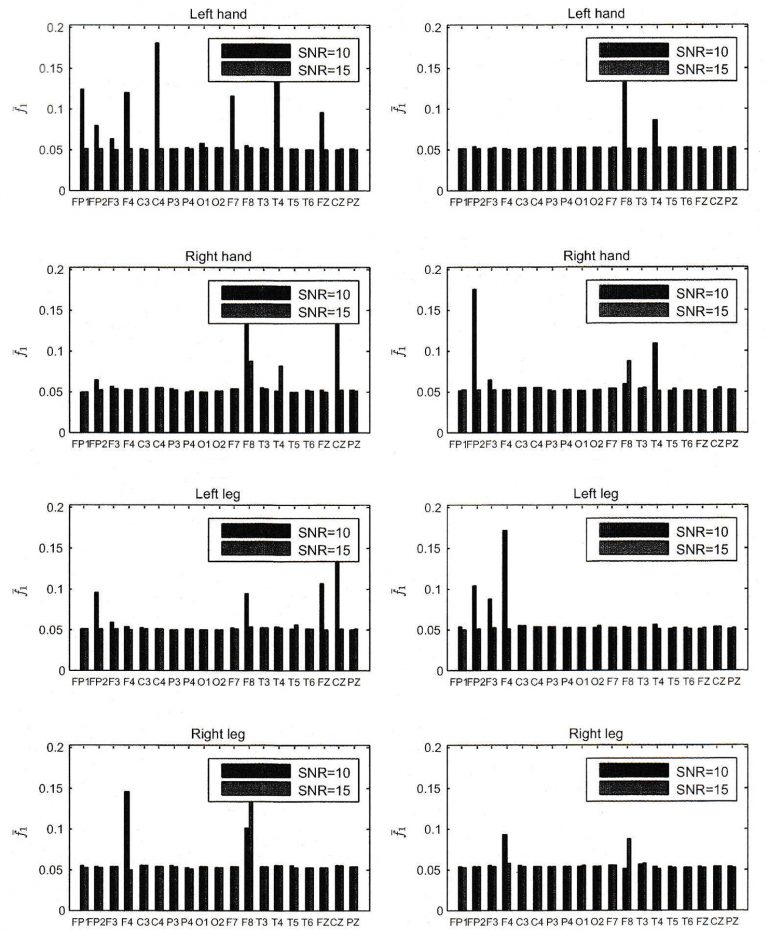
Stochastic electroencephalogram (EEG) signals are known to be nonstationary and often multicomponential. Detecting and extracting their components may help clinicians to localize brain neurological dysfunctionalities for patients with motor control disorders due to the fact that movement-related cortical activities are reflected in spectral EEG changes. A new algorithm for EEG signal components detection from its time-frequency distribution (TFD) has been proposed in this paper. The algorithm utilizes the modification of the Rényi entropy-based technique for number of components estimation, called short-term Rényi entropy (STRE), and upgraded by an iterative algorithm which was shown to enhance existing approaches. Combined with instantaneous frequency (IF) estimation, the proposed method was applied to EEG signal analysis both in noise-free and noisy environments for limb movements EEG signals, and was shown to be an efficient technique providing spectral description of brain activities at each electrode location up to moderate additive noise levels. Furthermore, the obtained information concerning the number of EEG signal components and their IFs show potentials to enhance diagnostics and treatment of neurological disorders for patients with motor control illnesses.
The research was conducted at the Faculty of Engineering, University of Rijeka (www.riteh.uniri.hr).